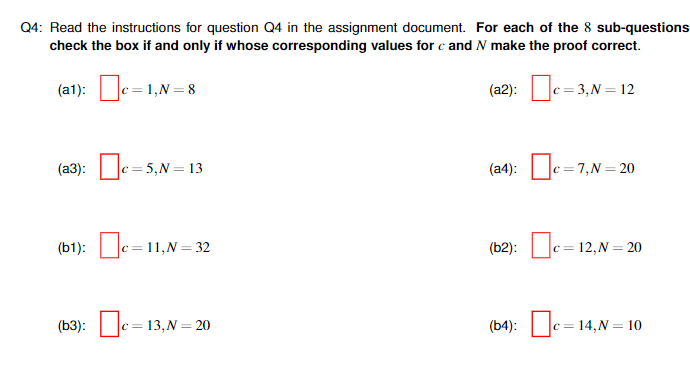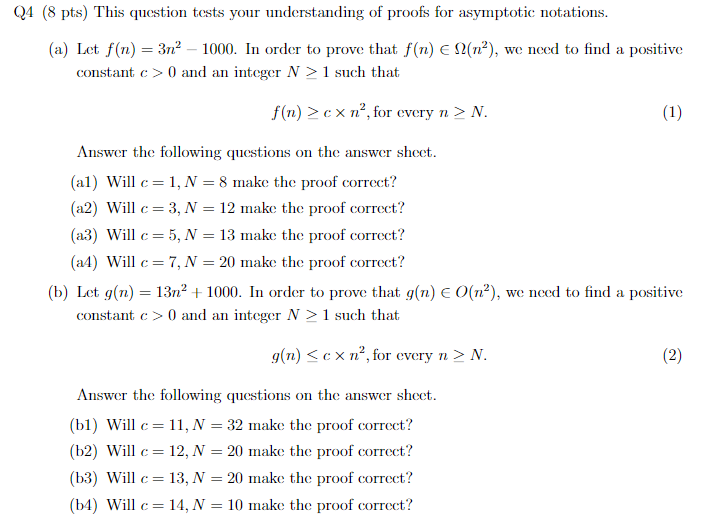Home /
Expert Answers /
Computer Science /
8-pts-this-question-tests-your-understanding-of-proofs-for-asymptotic-notat-pa414
(Solved): (8 pts) This question tests your understanding of proofs for asymptotic notat ...

(8 pts) This question tests your understanding of proofs for asymptotic notations. (a) Let . In order to prove that , we need to find a positive constant and an integer such that Answer the following questions on the answer sheet. (a1) Will make the proof correct? (a2) Will make the proof correct? (a3) Will make the proof correct? (a4) Will make the proof correct? (b) Let . In order to prove that , we need to find a positive constant and an integer such that Answer the following questions on the answer sheet. (b1) Will make the proof correct? (b2) Will make the proof correct? (b3) Will make the proof correct? (b4) Will make the proof correct?
Q4: Read the instructions for question Q4 in the assignment document. For each of the 8 sub-questions check the box if and only if whose corresponding values for and make the proof correct. (a1): (a2): (a3): (a4): (b1): (b2): (b3): (b4):
Expert Answer
Answer in below Explanation:a1) Will c=1, N=8 make t
